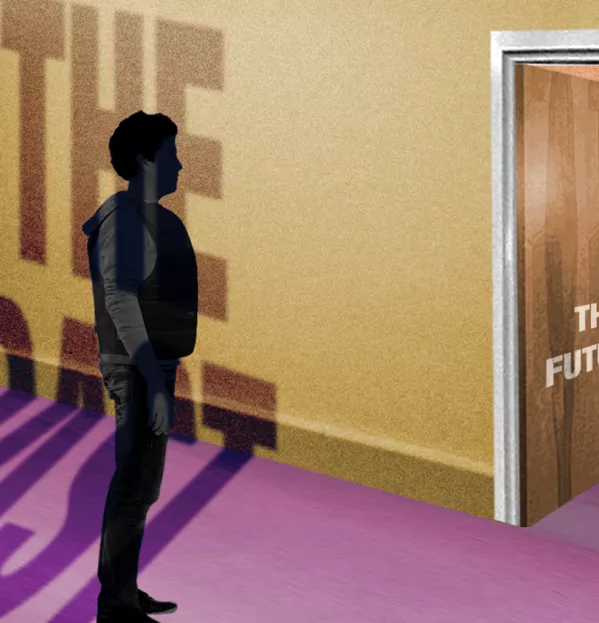Learners come to FE by a variety of paths, but many of those I see day to day have not had the best experience of education up until that point. They often struggle in their classes owing to the less-than-positive memories they have of their time at school (or alternative provision); they wear an attitude forged during this time like a bulletproof vest.
This attitude protects them from things such as failure, wasted effort and disappointment, yet at the same time drags them down, as it manifests itself in behaviour problems, apathy towards learning and a hesitancy to put the effort in to reach their goals. The shadow of the past can darken a student’s present. These legacy issues (as I like to call them) dismantle any potential they may have and leave them stuck in a pattern that’s destined to repeat itself.
As a lecturer, I find it a difficult thing to combat; as I don’t own a time machine, I can’t reach into people’s pasts and change their history. Anyway, if I did have a time machine, I’d be using it to win the lottery every week.
I’m also not a therapist, and I can’t untangle some of the knots that their previous experiences have left them in.
We can offer a ‘clean slate’
There are things that I can do, though. I can offer a clean slate if they’re willing to grab it. I don’t judge them on their past attainment. I don’t judge them on the trouble that they may have been in. I don’t judge them on the problems that they’ve had.
I tell them in lessons that I don’t care about who they were. Everyone gets a fresh start and many of them take it. But sometimes the bulletproof vest weighs heavy and they can’t quite get it off their shoulders. So I try to help with that, too. I offer chances. I work in close partnership with them and people with a stake in their success to try to give them something that would be of use, that might help them to break the pattern. Often they do.
Many learners wear an attitude, forged during their time at school, like a bulletproof vest
Sometimes they don’t. Because it’s not all down to me. It’s a question of growth, of being strong enough in themselves to get out from under that past and transition away from what has happened to what is happening now. Travelling from the past tense to the present not-so-tense (I’m sorry, you’re going to have to forgive me for that one, I’m an English specialist and it’s been a long day). Unfortunately, it doesn’t always happen because people are people and sometimes our struggles overtake us.
But when it does happen, when a learner - with or without our help - sheds the burden of their own legacy issues, it’s a joy and a privilege to watch and be part of.
That, in itself, is not a bad legacy at all, now that I think about it.
Tom Starkey teaches English at a college in the North of England @tstarkey1212
